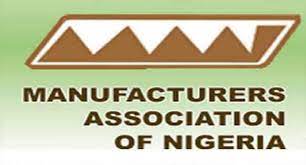The Manufacturing Association of Nigeria (MAN) has reported a concerning trend within the industry, revealing that about 767 manufacturing companies shut down operations while 335 experienced distress in 2023.
This development is attributed to various economic difficulties, including exchange rate volatility, rising inflation, and a general worsening of the investment climate.
These adversities have taken a toll on the manufacturing sector, significantly impacting its performance and sustainability.
MAN’s revelations came alongside its criticism of the Federal Government’s newly introduced Expatriate Employment Levy (EEL), which the association argues contradicts the objectives laid out in President Bola Tinubu’s Renewed Hope Agenda and the core principles of his Fiscal Policy and Tax Reform initiative.
The imposition of this levy is seen as a counterproductive measure that could exacerbate the already challenging conditions for manufacturers in Nigeria.
Introducing the Expatriate Employment Levy has sparked considerable concern among industry stakeholders. According to MAN, the levy, which charges $10,000 for staff and $15,000 for directors, represents a drastic increase from the previous $2,000 fee for the Combined Expatriate Residence Permit and Alien Card.
This new levy is criticised for potentially increasing the cost of doing business in Nigeria, particularly for manufacturers grappling with numerous challenges.
The manufacturing sector, as reported by MAN, has seen a decline in capacity utilisation to 56%, compounded by rising interest rates and a scarcity of foreign exchange needed for importing essential raw materials and machinery.
The sector also faces an inventory of unsold finished products valued at N350 billion, alongside a real growth drop to 2.4%.
A statement from MAN read: “The imposition of EEL poses potential impact on the manufacturing sector and the economy at large. This will in turn mark an unwarranted and unprecedented addition to the cost of doing business in Nigeria, especially to manufacturers.
“The manufacturing sector is already beset with multidimensional challenges. In year 2023, 335 manufacturing companies became distressed and 767 shut down.
“The capacity utilization in the sector has declined to 56%; interest rate is effectively above 30%; foreign exchange to import raw materials and production machine inventory of unsold finished products has increased to N350 billion and the real growth has dropped to 2.4%. Expatriates in Nigeria currently pay more than $2000 for CERPAC. The sector cannot afford another disincentive to increased investment and portfolio expansion.”






